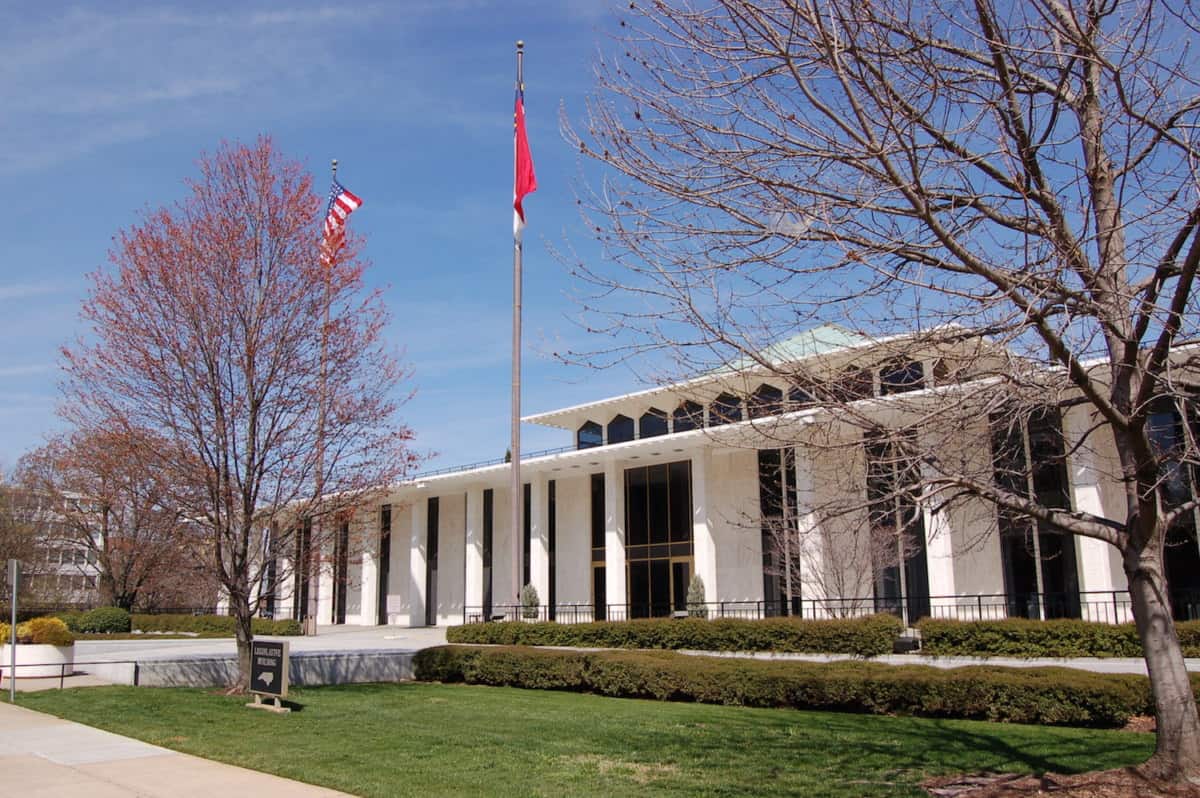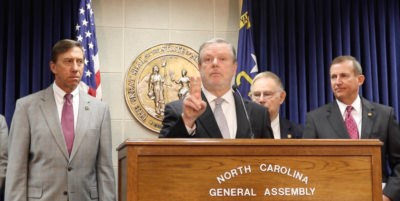Tensions ran high Thursday morning as the House Education Committee discussed House Bill 539, which would force traditional public schools to share certain funds with charter schools if passed.
The bill originally was about school playgrounds but was stripped of that language at the end of the long session last year. It would now allow charter schools to receive more tax money, grant money, and federal appropriations currently reserved for traditional public schools.
After several questions from committee members on how the bill would affect traditional public schools, Rep. Craig Horn, R-Union — a chairman on the committee — stressed that the state’s responsibility to educate includes charter schools.
“In the law, we are to fund children’s education,” Union said. “What we’re trying to determine is what is a fair and balanced way in which to do that so that a child being provided an education is treated fairly whether they choose a traditional public school or they choose a charter school.”
“But the charter school is a public school according to our state statutes.”
Opponents of the bill, however, are worried it would allocate money to charter schools for services they may not provide, like school lunches and driver’s education.
Another concern is that traditional public schools would be forced to share grant money directed toward specific schools, teachers, and programs.
The bill says that “gifts or grants (i) that expressly exclude charter schools” or “that have been expressly restricted by the donor or grantor to an individual school” will not be shared with charters.
However, the staff and committee chairs were not able to give straight answers on whether or not the kinds of grants that schools apply to would explicitly state such restrictions.
“We cannot get a clear cut answer on a pretty basic core piece of this bill,” said Rep. Chris Whitmire, R-Henderson.
“I have to go back to my three school systems — one of which has one of the highest academic performance per dollar spent, that will be shipping $441,000 of its money out of its county if this is implemented,” Whitmire said. “This bill is not ready for live time.”
Committee members on both sides of the aisle agreed with Whitmire that they do not feel prepared for a vote of concurrence until further research is done on the impacts of the bill. Some suggested the bill be picked back up during a long session next year due to its policy implications and unclear language.
Rep. John Bradford, R-Mecklenburg, insisted that the bill should be taken up now because of charter schools who are in immediate need of the funds — and deserve them.
Bradford said the bill, rather than taking traditional public school funds, is partially restoring funds that charter schools were entitled to before 2010 legislation — known as the Hackney/Nesbitt amendment for former House Speaker Joe Hackney, D-Orange, and Senate Minority Leader Martin Nesbitt, D-Buncombe — that took them away.
“I think it’s ambitious and, perhaps a little bit of a false premise, to suggest that this piece of legislation, 539, is wrongfully taking away something from public traditional schools because it is clear to me, prior to 2010, those moneys were not theirs to begin with,” Bradford said.
The 2010 legislation changed the calculation for school spending when it restricted charter schools from using local capital expense money.
Lake Norman Charter School teacher Elizabeth Padgett, who is also the charter school teacher of the year, shared her school’s struggles to the committee, followed by several teachers, students, board members, and advocates on both sides of the argument.
“In order to provide choices for families and build schools to meet those needs, charter schools have to raise their own capital funds,” Padgett said. “For Lake Norman Charter, 12.8 percent of the money that comes our way goes to rent and debt.”
Padgett and others spoke on the tension between traditional public and charter schools. Some Charlotte-Mecklenburg teachers who have students at her school, she said, are afraid to publicly support charters for fear of losing their jobs.
“Consider student A who is being educated here and student B who is being educated here,” she said. “They’re both being educated. Give them the same amount of money. I’m not sure why that doesn’t make sense.”
Rep. Frank Iler, R-Brunswick, said the solution is not in this bill and that funds shouldn’t be caught up in the LEAs or in bureaucracy.
“Finding a solution to this, folks, is going to be money following the student, not going through the LEA,” Brunswick said. “That’s the final solution. It’s just: follow the student.”



